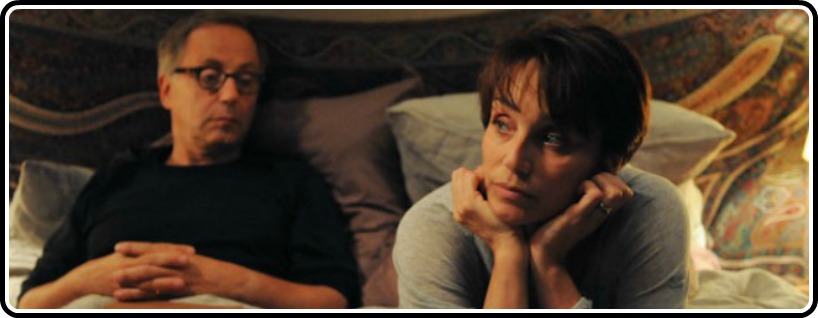With a new film on the way as part of the freshly announced Cannes 2013 lineup, director Francois Ozon has once again cemented himself as one of today’s most intriguing foreign auteurs. With pictures like Swimming Pool, 8 Women and the terminally underrated Hideaway, he has become a powerful and assured voice cinematically, and now, he may have hit us with arguably his greatest picture to date.
Entitled In The House, the film is Ozon’s 14th feature, and is possibly his most mature picture. The film follows the story of a 16-year-old boy who, after sparking a relationship with a teacher, is given the inspiration to not only continue writing, but continue to inject himself into the life and home of a close school friend. Writing about his experience in essays he gives to his teacher, who himself finds new inspiration through this young man’s work, things begin to unravel as everyone involved gets deeper than they ever could have imagined.
And we, the viewer, get a narrative blending Hitchcockian thrills and classic French comedy ultimately in the body of a truly thought-provoking black comedy about the creative process with some class discussion tossed in for good measure.
Hitchcockian is the perfect way to describe a film of this nature. A descriptor that has been connected to Ozon since his first feature, See The Sea, this may be his most perfectly distilled and mature thriller to date. Centrally focused on the idea of class voyeurism, Ozon’s at the very top of his game here, blending superb photography from Jerome Almeras and a brooding score from Philippe Rombi, Ozon’s picture is a Masters class in blending audio and visual, tones and moods, that is as beautiful as it is tense and provocative.
His camera is also as full of life as his screenplay. Starting off as a rather quiet classroom comedy, the film builds both narratively and aesthetically into a picture that bends the viewer’s expectations and begins blending fact and fiction into something unexpected. Inherently challenging us, the viewers, and how we see what has transpired, as either fact or fiction, the film only strays far enough to engage and involve the viewer and never disconnecting them from the picture. Ozon allows each dramatic moment to build and breath, with tension and danger building with each second. With the film’s ever expanding cinematic language throughout its 105 minute runtime, the picture goes from intimate study of the creative writing process to a voyeuristic look at domestic class issues. It’s a startling switch, but it’s one that comes with a perfect balance of tones and a director who is becoming one of the most visually intriguing filmmakers of his ilk.
And the performances here are killer to boot.
The big discovery here is star Ernst Umhauer. Taking on the role of Claude Garcia, the young boy who initiates the central plot, he portrays one of the more layered and dense characters we’ve seen on screen in quite some time. At first seeming like a youngster simply writing in response to his teacher’s “what you did this weekend” prompt, Claude’s story begins to take serious and in many was startling turns culminating in a narrative, and a performance, far beyond the years of anyone involved. It’s a layered and tactile performance, and it’s given life by a young actor who may very well be the biggest discovery of the year. Paired up with the likes of Fabrice Luchini, the teacher, his performance stands out as the picture’s best, the best of a truly great bunch. Luchini’s performance is equally layered, if not more so, with his past failures seemingly weighing on his shoulders like a metric ton. Toss in issues at home with his art dealer wife played by Kristin Scott Thomas, and you have a film so dense yet perfectly structured that it is truly something superb and special. Each relationship here has secondary meanings and reasons for continuing, and in the discovery of those meanings and purposes, the film truly becomes an involving and affecting bit of class drama and voyeuristic thrills.
Finding much of its commentary within its own structure, the film’s nearly two hour long runtime does lead to the occasional lull and telegraphed plot contrivance, but as far as narrative experiments go, Ozon’s screenplay is stellar. Based on Juan Mayorga’s play “The Boy In The Back Row,” the picture is a tough narrative cookie to crack, but Ozon’s assurance with his pen, with the film’s structural flights of fancy, proves not only his strength as a writer/director, but his strength with these type of dense and evocative thrillers.
While the film may suffer from the occasional lull, Ozon’s latest may be the director’s best film yet. Featuring award worthy performances from known commodities like Kristin Scott Thomas and new found talents like Ernst Umhauer, Ozon has created a tense thriller that blends dead pan comedy with a distinctly dark narrative of class voyeurism. Superbly written and directed, this is truly one of 2013’s best films, and will likely go down as one of its most underrated. Do not miss this, if it comes to a town near you.




